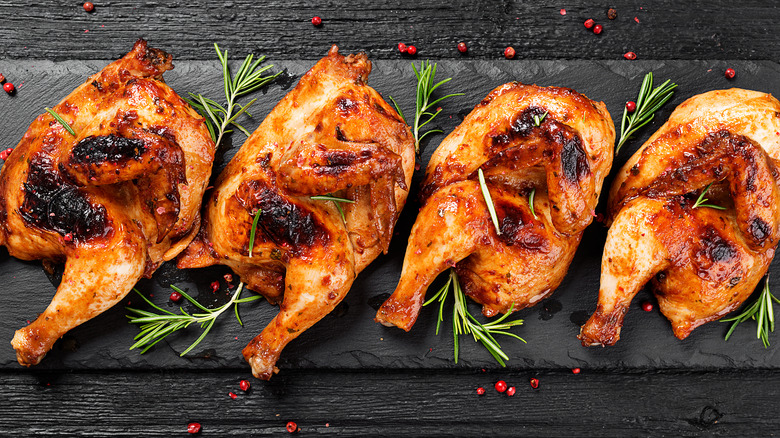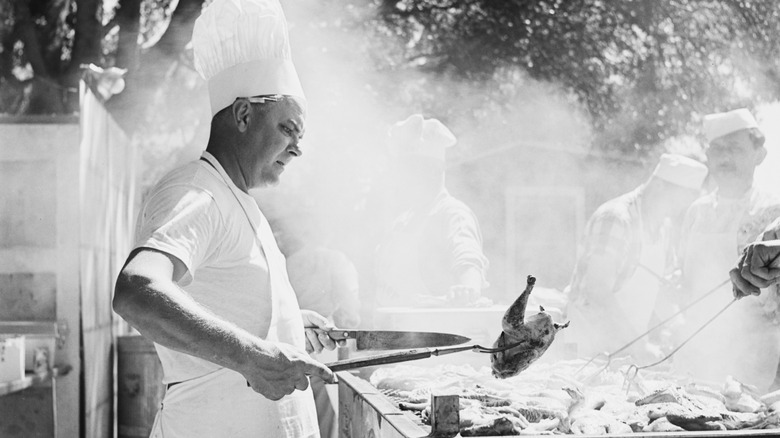It Turns Out Cornell Chicken Wasn't Even Invented At The University
Every year during summer's final burst, hundreds of thousands of people gather in Syracuse, New York, to attend the New York State Fair. In the midst of that fair's captivating shows, competitions, and vendors, Cornell Chicken established itself as a cornerstone of upstate New York summertime cuisine. With its golden-brown exterior and juicy, flavorful interior, Cornell Chicken is the epitome of grilled barbecue chicken for generations of New Yorkers.
Despite being so ubiquitous in the region and being named after Cornell University, Cornell Chicken wasn't even invented in New York. Instead, during his studies at Penn State, Robert Baker developed a vision of barbecue chicken that later became known as Cornell Chicken. After completing his master's at Penn State, Baker returned to New York and Cornell. Baker's barbecue vision was publicized and popularized during his time there through decades of organized barbecues and state fair appearances.
What makes Cornell Chicken so memorable?
That it was developed at Penn State is one of many facts you should know about Cornell Chicken. But what else about this dish makes it so magnetically mouthwatering that even the Clintons gave it a presidential thumbs up? The answer could be the role that Robert Baker's barbecue sauce plays in creating the perfect Cornell Chicken.
In Baker's Information Bulletin 862, published in 1950, he describes the process and recipe for Cornell Chicken — which he called charcoal-barbecued broilers at the time. In Baker's recipe, barbecue sauce is the yin to a broilers' yang, highlighting how this sauce goes a long way in basting the broilers to perfection.
While we don't know which aspect of Cornell Chicken was the most appealing to the Clintons, we do know that the barbecue sauce and chicken duo has since become a staple in countless barbecue dishes. In his bulletin, Baker encourages people to customize the barbecue sauce to fit their flavor and nutrition needs.
Chicken doesn't have to be boring
In the 1950s, poultry was sometimes regarded as a mundane, unappealing pick for American dinner plates. Robert Baker's research at Cornell was guided by the need to make chicken enjoyable, ultimately leading him to develop food items like ground poultry and chicken nuggets. Cornell Chicken was one of many innovations that stuck, and there are still countless flavor combinations waiting to be discovered that could make chicken all the more mouthwatering.
Given the goals of Baker's research, Cornell Chicken can be seen as a source of inspiration for creative poultry dishes; such glimpses of innovation and creativity might inspire you to experiment with grilled chicken recipes that aren't boring. At the same time, Cornell Chicken can serve as a reminder that great flavors can come from seemingly boring places, which could lead to an unexpected ingredient leveling up a barbecue chicken recipe. Innovation does not have to stop with Baker.


